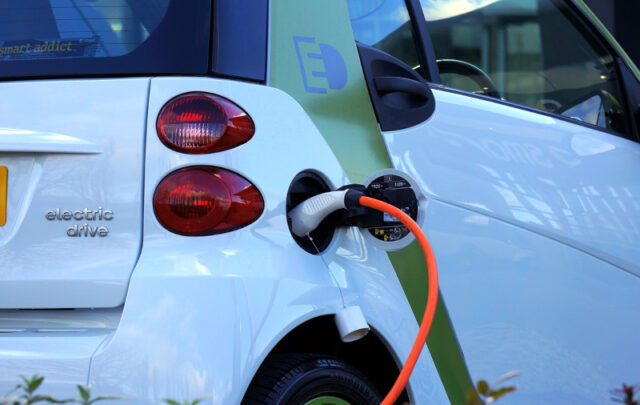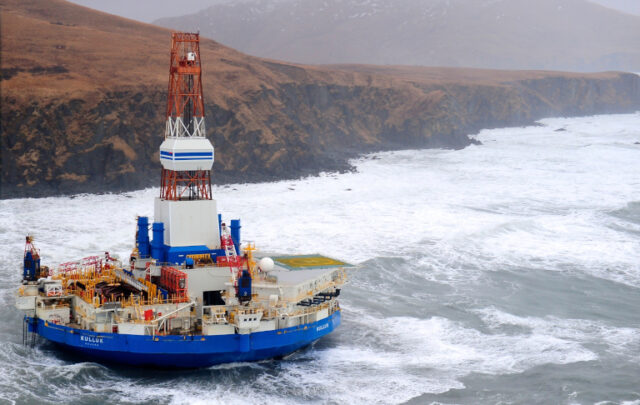Click on the headline (link) for the full text.
Many more articles are available through the Energy Bulletin homepage
Europe diary: The gas man [Putin]
Mark Mardell, BBC
The EU’s awkward relationship with Russian President Vladimir Putin, and the power Moscow projects through pipelines.
—-
Much of the gas that Europe uses to cook its food and heat its homes comes through here after a long journey from Siberia. Continental Europe is heavily reliant on Russian gas and Britain could be going the same way.
And the Russian state-controlled giant, Gazprom, has a 40% stake in Wingas. That brings with it worries that Russia could use its gas to twist arms and get its own way, and that consumers could, quite literally, pay the price. At the moment 40% of Germany’s gas comes from Russia. In Britain we have all become pretty complacent with a glut of North Sea oil. It was only a couple of years ago that we started importing any gas, but the government predicts that by 2020 up to 90% of it could be imported. Russia is the most obvious source for the bulk of it.
Alan Asher, the head of Britain’s gas and electricity watchdog, Energywatch, tells me people are right to be worried. He says: “Russian gas is hardly likely to be cheaper (than gas in Britain now): if you control a major asset you are able to price that at a level that maximises returns. Russia is potentially not reliable: of course consumers worry about price but more important is availability. If you are relying on a source that is not reliable, all the work we do in Europe about competitiveness is for nothing.”
(19 Oct 2006)
More thoughts about Gazprom
Heading Out, The Oil Drum
Well, I had to think about this for a little while, but I have decided to draw your attention to the BBC commentary on the current European vs Russian situation in regard to fuel pipelines, as described by Mark Mardell at the BBC yesterday.
“You know what happens when they get in the same room as Putin. They all drop their trousers and say ‘I love you Vladimir’.” This is the gloomy and cynical view from a senior EU insider, of the leaders of the European Union’s 25 countries. Perhaps it’s intended to chivvy rather than insult. But there is no doubt that the EU summit in Finland is a rather odd event.
There has been much debate over the reliability of the Russian oil and gas supplies to the rest of the world, with many commentators noting the historic reliability of the source. But as Gazprom takes over an increasing percentage of the world’s delivery system, there are some concerns that perhaps need to be highlighted. This is particularly true for the United States with our “Just in time” philosophy, which (as I noted) James Woolsey worried about in St Louis.
The BBC article notes three concerns with the situation a) the threat of a supply disruption, b) the increasingly monopolistic position of Gazprom as a supplier, and c) the lack of a common resolve among nations as to how to deal with this.
(21 Oct 2006)
Very interesting discussion in the Comments that follow the article. -BA
Israeli PM raises energy issue in Moscow
Ryan Nadel, Jerusalem Post
Israel imports 90 percent of the approximately 250,000 barrels of oil it uses daily from former Soviet Union countries via tankers, a fact that will figure prominently in Prime Minister Ehud Olmert’s talks with President Vladimir Putin and other top Russian officials in Moscow this week.
Because Israel has limited fossil fuel resources, these relationships are of extreme importance for the functioning of the country and economy, a National Infrastructure Ministry official told The Jerusalem Post Wednesday.
Of Israel’s daily imports, 50% to 60% come from Russia, according to the Russian business daily, RBK.
While the worry about Iran’s nuclear program will figure prominently in talks between Putin and Olmert, “the most important issue on the agenda for Moscow is energy cooperation,” RBK reported.
(18 Oct 2006)
Submitter Bat-Tzion Benjaminson writes: “The article illustrates the growing phenomenon of geopolitical maneuvering in an era of diminishing energy supplies, even for a technologically advanced country like Israel. Israel and Russia were former bitter enemies. Look what happened!”
The Emerging Russian Giant Plays its Cards Strategically
F. William Engdahl, Global Research
The September 2006 summit in Paris between Russia’s Vladimir Putin, French President Jacques Chirac and German Chancellor Angela Merkel, underscored the re-emerging of Russia as a major global power. The new Russia is gaining in influence through a series of strategic moves revolving around its geopolitical assets in energy-most notably its oil and natural gas. It’s doing so by shrewdly taking advantage of the strategic follies and major political blunders of Washington. The new Russia also realizes that if it does not act decisively, it soon will be encircled and trumped by a military rival, USA, for which it has little defenses left. The battle, largely unspoken, is the highest stakes battle in world politics today. Iran and Syria are seen by Washington strategists as mere steps to this great Russian End Game.
F. William Engdahl is a Global Research Contributing Editor and author of the book, ‘A Century of War: Anglo-American Oil Politics and the New World Order,’ Pluto Press Ltd. He has completed a soon-to-be published book on GMO titled, ‘Seeds of Destruction: The Hidden Political Agenda Behind GMO’. He may be contacted through his website, www.engdahl.oilgeopolitics.net.
(7 Oct 2006)
Long, detailed analysis. -BA





